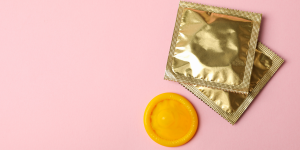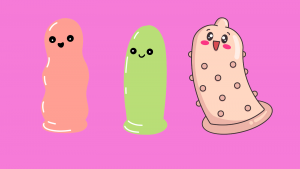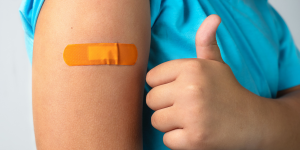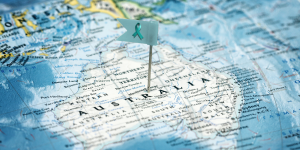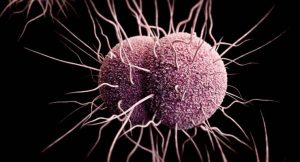Yes. You can get STIs from kissing. But most experts would tell you that kissing—even passionate kissing with tongue—is a pretty safe sexual behavior.
When we talk about STIs and kissing, the real risk is oral herpes. Herpes is a very common infection that causes sores on or near the mouth, face, vulva, vagina, penis, scrotum, or anus. It’s estimated that 50% of adults in the US have herpes.
Herpes is caused by two types of the herpes simplex virus (HSV). HSV-1 causes almost all oral herpes cases, and HSV-2 cause most genital herpes cases. That said, either type of the virus can cause sores in any of these places.
The sores come and go, often appearing when people are sick or stressed. This may be why people refer to them as cold sores. These sores are very contagious. In fact, experts think most people who have oral herpes contracted it when they were children from a quick kiss on the lips by a relative or friend.
A person is only contagious when they have a sore, are recovering from a sore, or are about to get a sore. It’s best not to kiss anyone if either of you has or recently had a visible herpes sore. You can’t see when someone is about to get a sore, but people who have oral herpes often say they get a feeling on their lips when one is coming. Take a break from kissing if either of you think you might be getting a sore.
As for other STIs, kissing isn’t much of a risk. Chlamydia and gonorrhea, which are both caused by bacteria, can infect the throat, but that’s the result of oral sex not a game of tonsil hockey.
HIV is present in saliva but in such low doses that it doesn’t cause transmission. C. Everett Koop, who was the Surgeon General at the very beginning of the HIV/AIDS epidemic, once famously said you’d have to drink a bucket of saliva to have any risk for HIV. (Gross!) The only time kissing might be an HIV risk is if there’s an exchange of blood involved like if one or both of the partners had gums that were bleeding heavily or open sores in their mouth.
This is similar with syphilis. It’s caused by a bacteria and not found in saliva, but it can cause sores in your mouth that could spread the infection to another person.
Bottom line: Skip the kissing if you have any kind of sores in or around your mouth (and see a health care provider). Otherwise, you can smooch away without worry.
